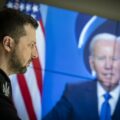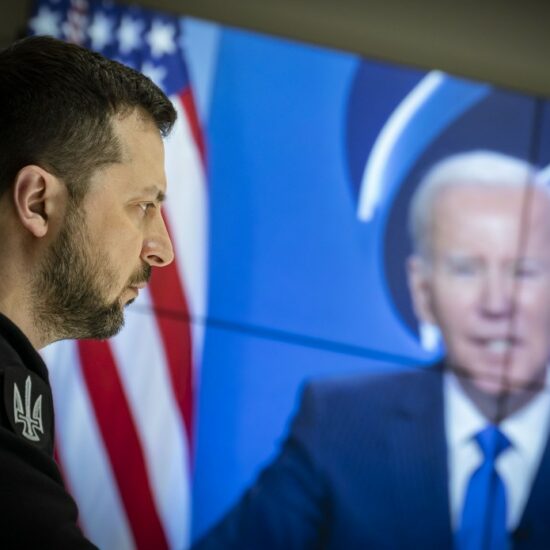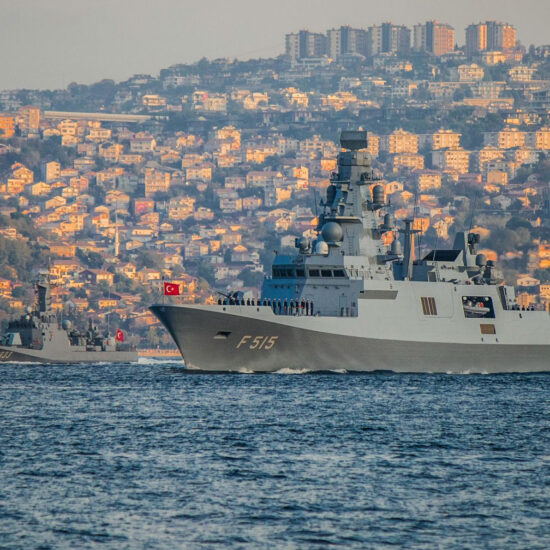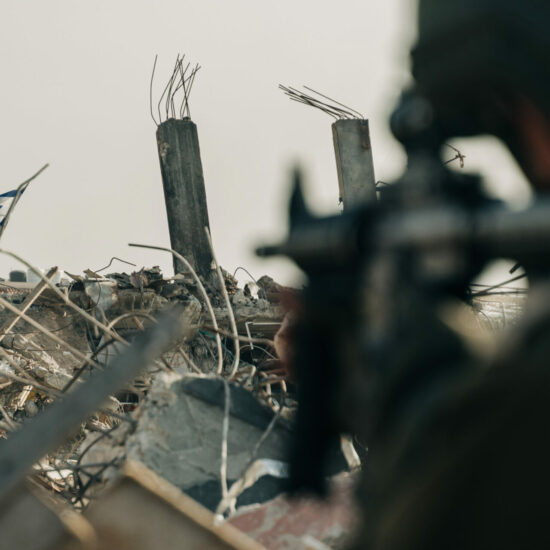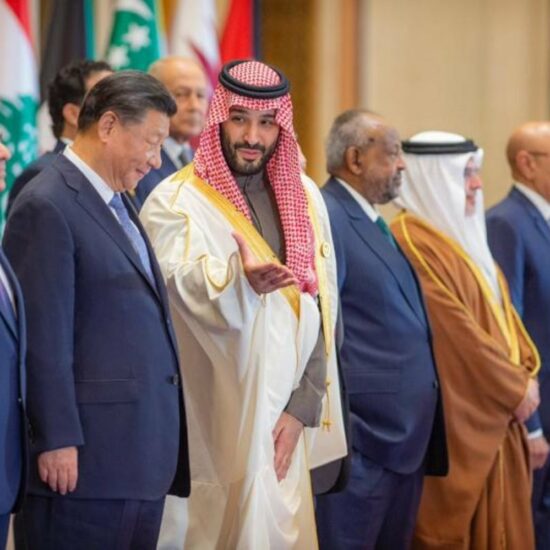
We often hear how 2020 and the Covid-19 pandemic have changed everything, yet very rarely do we get to see this increasingly over-used talking point of a shifting paradigm applied to conceptions of foreign policy and grand strategy apropos of the world’s most powerful state, the United States of America. Prolific author and Quincy Institute President Andrew Bacevich, however, has sought to rectify this oversight with his new book After the Apocalypse: America’s Role in a World Transformed. More importantly, Bacevich does not pin the decline of U.S. statecraft solely on the pandemic, but rather uses recent events as a foil for advocating the necessary re-examination of U.S. history and to unravel the many myths that uphold an increasingly crumbling liberal international order.
After the Apocalypse is effectively an unofficial sequel to last year’s “Tomorrow the World” by Stephen Wertheim, then also part of the Quincy Institute. The latter made the historical case that what is now often derided as interwar isolationism was in practice anything but, and that the United States had made a conscious choice after the fall of France in 1940 to become a truly global hegemon. This choice meant denigrating all alternatives of grand strategy as quixotic and unviable. Bacevich begins his narrative on the heels of this era at the start of the Cold War, showing how anti-Soviet containment produced interventions of dubious strategic value which called into question the seemingly liberationist rhetoric of America’s foreign policy establishment. The Vietnam War, in which Bacevich had himself served, is presented as a particularly myth-shattering event, forcing a once exclusive and myopic class of foreign policy mandarins to make concessions and reformulate policy as the general American public turned hostile to that conflict.
It is this long-serving class of imperial managers at the helm of U.S. foreign policy for whom Bacevich reserves much ire in After the Apocalypse. Specifically, he focuses on how these elites seem to become less effective with time. His analysis draws attention on the post-Cold War (and especially Post 9/11) American penchant for military interventionism, the overwhelming failure of these ventures, and the institutional failure to learn from past mistakes. Bacevich argues that one reason the foreign policy establishment (cf. the blob) is so hidebound is due to their belief in the civic religion of American Exceptionalism—the view that casts U.S. history as inherently a teleological, missionary struggle for the advancement of human liberty within the confines of a liberal political framework.
This dominant ideology professes that a set of foundational principles inherent in American founding reserve a special role for the United States government in ensuring the progress of humanity toward equality and democracy. Bacevich, on the other hand, rejects such false narratives by critically examining the real-life consequences of this mindset and its failures. As the tragic fate of American’s regime change wars in the Middle East (such as the disaster in Afghanistan) have demonstrated, the massive toll of interventionism has only accelerated and increased through the decades.
Despite the many historical examples of imperial overreach and the dangers that it presents to U.S. diplomacy, economic health, and domestic civil liberties, Bacevich’s systemic repudiation of American beneficence and exceptionalism are only the scaffolding to support his vision of the emergent world order. The world today is drastically different from both the Cold War and the brief unipolar moment that came after it. The Covid-19 pandemic is not the beginning stage in the end of unipolarity but the final nail in its coffin. China is now strong enough to carve its own path forward. The European states can defend themselves without American backing. should they be left on their own to do so. More and more countries around the world see the United States, not as a guarantor of their stability, but rather as a force that could undermine it through reckless action. Further expansion of imperial policies, therefore, decrease American security and influence rather than affirm it.
Understanding that the U.S. ability to dictate the course of history on a truly global scale is narrowing, Bacevich wishes Washington would pivot to more sustainable policies that enable the country to keep a prime position in global affairs without stumbling into further disasters. His recommendations to do this are simple yet logical: refocus security on mutual defense with geographically continuous nations and hemispheric neighbors. As such, Canada and Mexico emerge as the true “special relationships” for the U.S. if policymakers use any remotely objective and sound strategic analysis.
This rebalancing of spending priorities from a bloated defense establishment back towards quality-of-life and technological innovations, Bacevich believes, would enable growth of sustainable energy and infrastructure. Such a vision could be realized by using the military and sanctions as a last resort rather than a reflexive first and by means of adopting a strategic posture which is nimbler and more capable of ad-hoc balancing rather than striving for total world domination. Put simply, Bacevich suggests that the U.S. should leverage its core advantages to become a much more normal, albeit still great, power. The reoriented United States would be a republic engaged in projects of self-improvement rather than running a messianic empire. One that will remain an important country in international affairs but would affirm its role as a guarantor of peace rather than an agent of upheaval. The civic example of the United States must first be strengthened at home: America stands as a model for voluntary emulation by foreign countries rather than a ‘Shining City on a Hill’ advancing a millenarian quest by force.
There is, perhaps, one argument Bacevich advances with which a realist reader could take issue. Bacevich cites America’s racial reckoning over police violence and counter-narratives to hegemonic and chauvinistic teachings of American history (such as the 1619 Project) as examples of people coming to question the rhetoric of American Exceptionalism. Though he hardly addresses the issue directly, it seems that he is sympathetic to such narratives that cast America and her founding as steeped in racism rather than liberty as a means of questioning old and outdated shibboleths. Of course, affirming such narratives only replaces one ideological straitjacket with another and retains the assumption of unique national insight as it does so. And, as we increasingly see from rhetoric advanced by many in the establishment, a narrative of contrition and guilt can become just as much a call to exceptionalism and even interventionism as former ascendant movements like Christian nationalism and neoconservatism once were.
If a governing establishment comes to identify with human rights and historical contrition as its raison d’etre, it could once more lead the state down the toxic path of militarized humanitarian interventionism such as that championed by figures like Samantha Power. Perhaps then, it would be prudent to refrain from positing overarching meta-narrative of statecraft that would impose a selective historiography of any kind—save that of survival, necessity, and sovereignty. Such a position would certainly be more in line with the rest of the arguments of After the Apocalypse.
Bacevich has given those who advocate for a paradigm shift in U.S. foreign policy that would better reflect a multipolar world an excellent and accessible book with both lucid and passionate prose. It is a kind of introductory work that could be shared with people who know little about international affairs to increase their awareness of the ‘realism and restraint’ movement in North Atlantic foreign policy and makes a sound case for its pertinence and necessity. Considering the upheavals in the international system and the challenges they generate to old orthodoxies and idealisms of our world today, After the Apocalypse is a welcome addition to a new realist mode of thinking we desperately need.
Dr. Christopher Mott is a Research Fellow at the Institute for Peace & Diplomacy.

